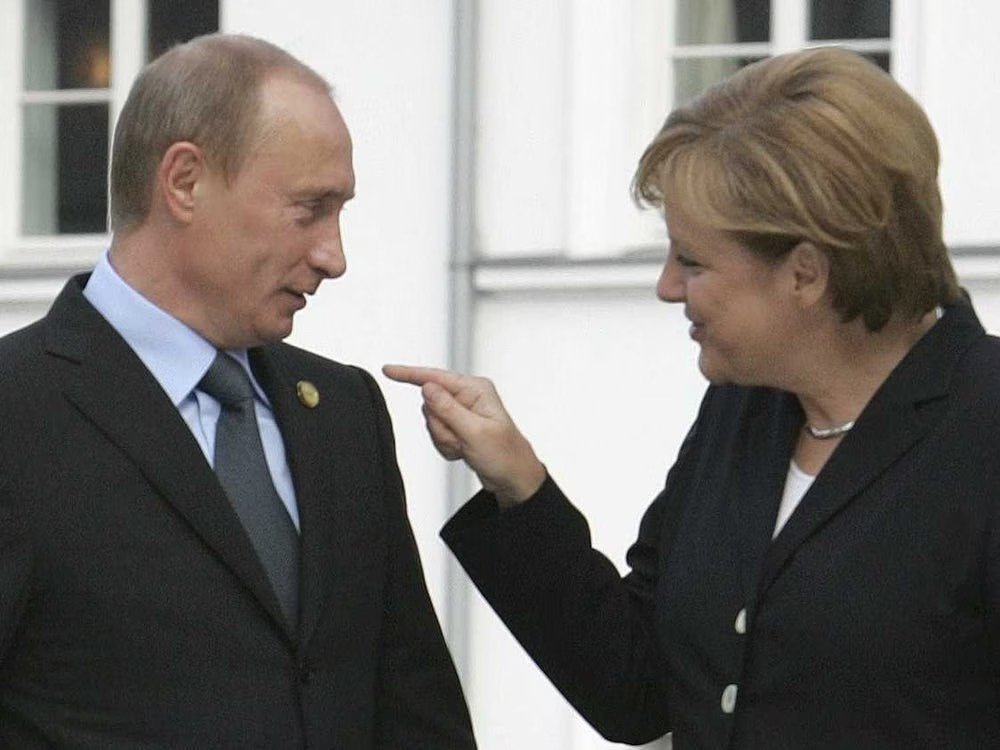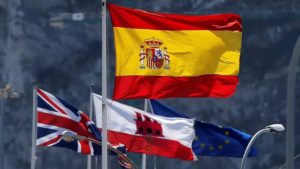On December 7, Angela Merkel, former chancellor of Germany, gave her first interview since she stepped down from her duties in the fall of 2021. For 16 years, during a total of four terms, she was called the unspoken leader of Europe and the most powerful woman in the world. The interview reveals “Merkel as a politician” and “Merkel as a person” and explains what guided her decisions about the future of her country in terms of both foreign and domestic policy.
This article will focus on Merkel’s policy on the Eastern front, and in more detail, her long-standing “personal” relationship with Putin, the Nord Stream project, the war in Ukraine, and the Minsk agreement. Ultimately, this interview can be considered a landmark event. For the first time, Merkel openly and publicly condemned the Russian invasion of Ukraine and responded to years of criticism against her for being “too soft” on the Kremlin.
Relationship with Putin
Angela Merkel had multiple conversations with Putin during her many years as chancellor. She made 20 visits to Russia during her terms, and her dialogue with Russia did not end even in the most difficult moments of geopolitics. Merkel stuck to this principle during her last visit to Russia in August 2021 too. During that visit, their sharply different views of the Kremlin’s treatment of imprisoned Putin’s critic, Alexei Navalny, greatly impacted the political climate of the meeting. Merkel once again called for Navalny’s release and demanded a fair investigation into a domestic flight during which Navalny was poisoned with a Soviet-developed nerve agent. Putin rejected all criticism and claimed that Navalny’s sentencing was not connected to his opposition activities.
In her first public interview after leaving the office, Merkel said she realized back in 2007 how Putin thought about Europe. She stated that the only language he understands is harshness. Merkel said she has never been naive in her dealings with Russia and her relationships with Putin.

During the years in which Angela Merkel led the German government, she had to deal with problems related to the collapse of the Soviet Union – Georgia, Ukraine, Transnistria, the Baltic States, Armenia, and Azerbaijan. In this regard, she recalls a meeting with Putin in Sochi, Russia in 2007. Back then, Putin told Merkel for the first time that he considered the collapse of the USSR the most terrible event of the 20th century. She responded that for her it was a happy moment in her life, allowing her the freedom to control her own destiny. “It became clear that there were big differences between us, and those differences kept growing, so in all these years it has not been possible to definitively end the Cold War,” Merkel said.
After her last visit to Moscow in August 2021, she told the German news magazine Der Spiegel that “the feeling was very clear: for Putin, only power counts.” It was obvious that after many years and attempts to negotiate, Putin’s vision of how the global order should look is a lot different from the way it is seen in Germany. She claimed that he is negative toward everything European democracies value – peace, freedom, and rule of law.
The War in Ukraine
In response to criticism she received about Russia invading Ukraine, Merkel stated “diplomacy is not wrong just because it does not succeed.” Additionally, she refused to give any apology for her policies towards the Kremlin, but acknowledged that Germany “should have reacted more quickly to Russia’s aggressiveness.” She underlined that she openly condemns the war that Putin started and that there is no justification for this brutal invasion. “It’s an objective breach of all international laws and of everything that allows us in Europe to live in peace at all” she claimed.
She believes that the war will end “one day” with negotiations. According to her, that is how wars normally end, at negotiating tables.
The Minsk agreement and NATO
In April 2022, Ukrainian President Volodymyr Zelensky criticized Angela Merkel and former French President Nicolas Sarkozy for declining a “membership action plan” for Ukraine. This decision essentially halted any possibility for Ukraine to join NATO any time soon. Zelensky later called it a “miscalculation.” Merkel responded to criticism as well. She insisted that Ukraine joining NATO at that time would have provoked Russia even more.
In 2014, leaders of Ukraine, Russia, France, and Germany ratified the Minsk agreement – a series of measures that were taken to resolve the conflict in the Donbas region. The Minsk agreements were a part of the major response to the Russian annexation of Ukrainian Crimea. The response also included Russia’s exclusion from the Group of Eight and some economic sanctions. In her last interview, Merkel declared that the Minsk agreement brought calm and gave Ukraine a lot of time to strengthen its army and become the country it is now. Unfortunately, by the end of her last term, Russia greatly distanced itself from the agreements and the Normandy Format talks (between Germany, France, Ukraine, and Russia), and chose aggression instead.

Conclusion
The war in Ukraine broke out 10 months ago. A few months before that happened, Merkel’s time in office came to an end. As she herself admits, she left with no regrets about not standing for another term. She stated that “somebody new was needed, domestically it was high time, and from a foreign policy perspective, there were so many things we tried again and again but were not moving a millimeter on.”
In December 2021, thousands of Putin’s troops were already amassed at Ukraine’s border as the new German chancellor, Olaf Scholz, began to form his government. According to Amnesty International, such aggressive behavior from the Russian side received condemnation from the democratic world. Germany was among the countries that tried to threaten Russia with economic sanctions and political isolation, however, it did not stop the aggressor state from starting a full-scale invasion two months later. Were Putin’s actions something that could have been prevented by the old or new German government? There is no unambiguous answer to that. However, there is Merkel’s perspective on the matter. In response to the failed Minsk agreement, Merkel said “I don’t blame myself for not having tried hard enough. I tried sufficiently. It is a great sadness that I did not succeed.”
Cover image by: Getty Images







